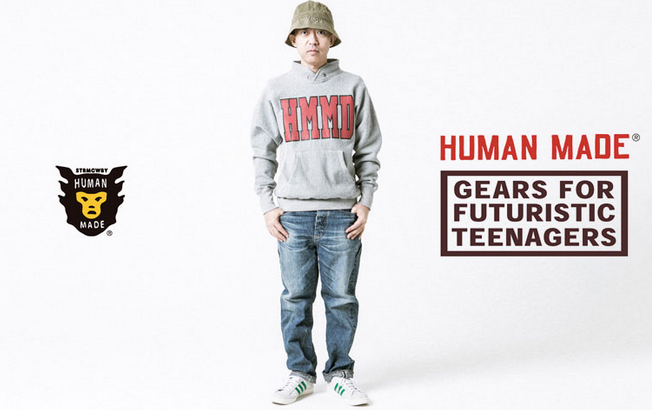I was having a coffee with editor of Wired magazine a few days ago and we got onto the subject of ‘human’ being a trend in the future. He said that the founder of Net-a-Porter said that in the future we will buy clothes with labels saying “Human-Made”. I agree.
As AI, robotics and automation grow the balancing trend (or countertrend if you prefer this term) will be an emphasis on human hands, human production, human craft, human imperfection and human vs machine intelligence and so on. We might even get to a situation where people buy human-made vs AI made in the same way we currently buy organic vs non-organic food.
So, for instance, we might see burger bars with signage saying ‘human made food’, books saying ‘human written’ or computers with labels saying ‘human designed on the outside, AI on the inside’. At the very extreme we might eventually witness an artificial-authentic divide in the human population, whereby we have the original, organic, human species and a generically augmented and machine-enhanced, hybrid species.
As an aside, I was talking with some students at the Dyson Lab today about AI to AI interactions and one idea that came up was that of ‘digital provenance’. So, for example, we might be able to ask where the code for a product has come from (when it was written by whom and where) much in the same way that food products currently display information about who, where and when they were made. Maybe code will have a ‘best before’ date and maybe we’ll ask algorithms to reveal their biases (a bit like Blockchain but with more narrative quality).
BTW, two spin-offs of possible importance here. Firstly, the difference between artificial and sythetic and, secondly, how do you know when something is a synthetic construct that mimics a human behaviour or human production, which is to say how do we really know something is real? (Thanks Nik).

